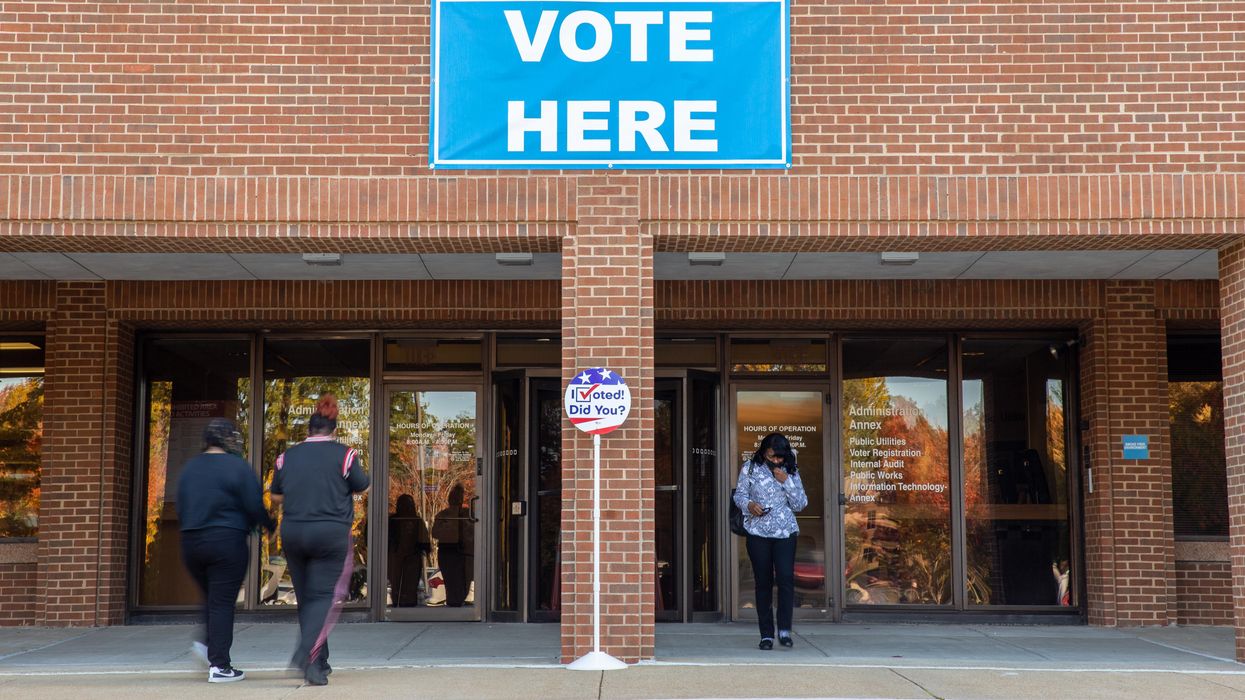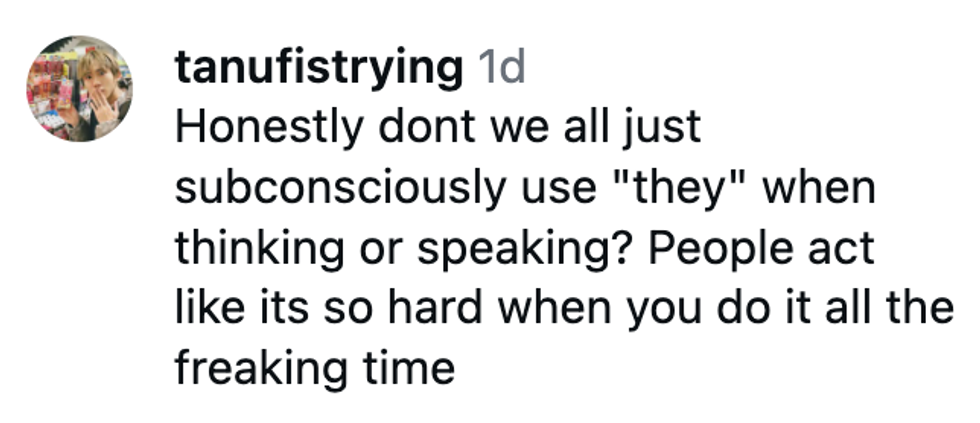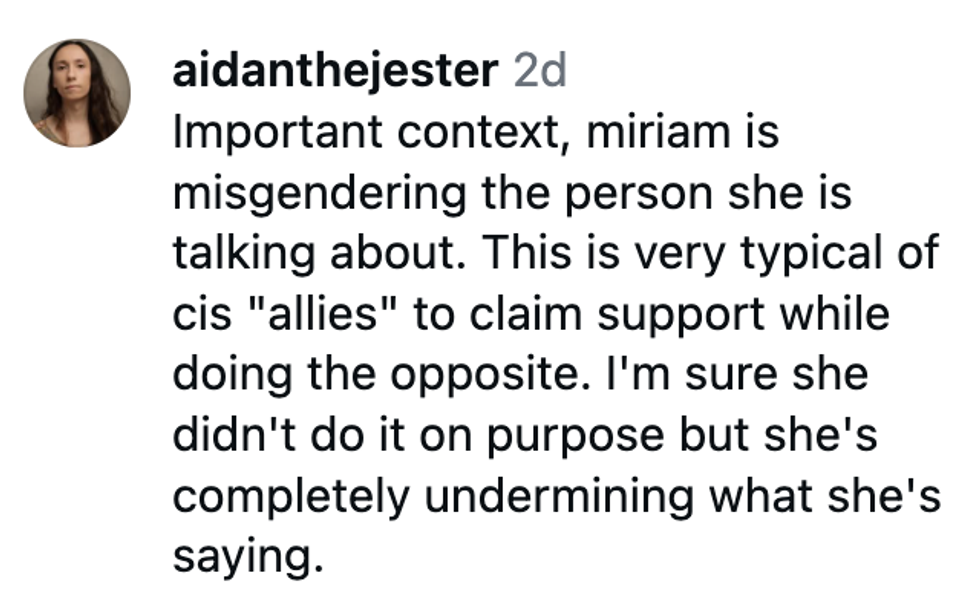I headed down to D.C. for the fall board meeting and annual national gala dinner of the Human Rights Campaign.
As I get set for a weekend of fundraising, activism and organizing, I wanted folks here to consider a few things and take three deep breaths along with me, especially as we look ahead to Election Day on Tuesday, November 8.
First Breath: We Might Not Know the Final Midterm Results for Weeks
With control of the Senate on a razor’s edge, the chance that we wind up in a situation with a single determinative race is rather high. If the polls and pundits are correct (and that’s a big if), Democrats will pick up a senate seat in Pennsylvania, lose one in Nevada, and once again find themselves looking to Georgia for control of the Senate.
The race between Sen. Raphael Warnock and Herschel Walker, however, might not be over after November 8. That’s because there’s a strong chance that neither candidate receives over 50 percent of the vote.
A libertarian candidate named Chase Oliver, whom most people in Georgia and America have never heard of, is polling at around four percent. If that number holds, it is highly likely that this will force a run-off election four weeks later on December 6.
If you’re experiencing deja vu reading this, that’s because a run-off election for two Senate seats after the 2020 election flipped control of the chamber after Democrats won both races. It isn’t at all clear which party would benefit most from a run-off at this time, but a key factor would be voter enthusiasm.
So far in Georgia, early voter turnout has set records for a midterm, with over 1,200,000 voters having already cast ballots. Herschel Walker’s negatives are higher than those of Warnock, and it isn’t clear that voters casting protest votes for Oliver would show up to vote for either candidate in December.
That would tend to favor whomever is leading the race after November 8.
If we wind up with a 50/49 with-one-runoff situation, settle in for four weeks of drama and anxiety. On balance, Warnock could fare better in such a race because, as in 2020, it really all would be on the line, especially if we already know the House has flipped (more on that below).
But to get to a victory there again would take one more big push and final sprint to the finish line.
Second Breath: Polls Are Fickle, But History Is Hard to Buck
As gas prices rose again briefly in October and economic woes grew top of mind for more Americans, the generic Congressional polls shifted toward the Republicans by a few points, leading the media to pile on and declare a Red Wave was coming after all.
But, look, a red wave was always coming, and here’s why.
For two years, Republicans have felt helpless to do anything to stop the “Democratic agenda,” even while they’ve been inundated with messaging from Fox News and other right-wing media that the socialists are ruining America. Add to that historically high inflation and economic uncertainty, and a good chunk of the electorate is highly motivated to punish the party in power, even while another good portion is feeling unmotivated to show up for their own team.
This dynamic has happened over and over, so much so that for the Democrats not to lose the House when their majority is so thin frankly would surprise everyone. In fact, given these fundmentals—a poor economy and a president whose approval rates are underwater—history says the House midterms should be a wipe out.
And yet, we’re still here talking about possibly holding the House, or at least not losing it by very much.
I want us to be realistic. We most likely will lose our House majority, even as those same polls a few weeks ago that said Republicans were up are now saying Democrats have the edge.
When I see this shift, I remind myself that polls waver, but history is rooted.
As Mark Mellman, a longtime Democratic strategist, noted:
“In the 19 midterms since the end of World War II, the party holding the White House has lost an average of 27 House seats."
“In the five strongest midterm showings for the president’s party, it lost 10 or fewer House seats. In four midterms the presidential party losses were 10-19 seats; in two, the losses were 20-29 seats; in another two cycles 30-44 seats; and in the six worst midterm contests, the White House party lost 45 or more House seats.”
For Democrats not to lose five House seat would require a Blue Wave of enormous strength to counter that Red one. And as I’ve written about earlier, the enthusiasm post-Dobbs needs to reach into blue state enclaves—where abortion rights are not at immediate risk, but where the most vulnerable House seats actually can be found.
That is a tall ask.
In states like California, New York, and Oregon, I haven’t seen the Blue Wave in data like new voter registration gaps favoring women over men, while it has shown up in the data of states where abortion rights are directly threatened. The ironic upshot of that is, the abortion rights vote may very well win us Senate races in some swing states (Georgia, Pennsylvania, Arizona) while losing House seats in blue states.
There is still time to sound the warning and turn out voters in swing districts located in “safe” blue states. You can see a list of toss-up districts (including how very many are actually in the solidly blue states Biden won in 2020) to determine where your dollars and volunteering could make a difference.
Look at the gray “toss-up” races here.
Third Breath: The World Will Not End if We Lose the House—Or Even Congress
When democracy is under attack, as it most assuredly is, the thought of its foes gaining control of the levers of power is a sickening one. No one wants to see it happen.
But we should never rule out the possibility that it might, and we in fact should prepare mentally for that possibility. We already know that we could easily lose the House, and if the polls are off by an undercount of MAGA voters once again, we could lose the Senate.
We should be under no illusions because this could all go badly.
For this we need a bit of perspective, and history can help. Backing out a bit from the fight we are currently in, there is no world in which the GOP doesn’t retake control of Congress at some point in time down the line.
We can’t be playing defense forever. Sometimes the other team will have the ball. And it may be far better, if that is going to happen, for it to land when Democrats still control the White House.
Congressional Republicans can do a lot of damage while in power, but they can’t pass new laws over President Biden’s veto. They can stop the Biden agenda (which incidentally they can do with control of either chamber), and they can put an end to his liberal judicial appointments if they control the Senate.
But luckily for the planet, many of the most important portions of the Biden agenda, including an aggressive plan to address climate change, already were enacted and signed into law in his first two years.
To be sure, the Republicans could seek to hold the country hostage financially in order to push through a radical agenda, namely by refusing to increase the debt ceiling. They could shut down the country like they did under Obama.
That’s a game of economic chicken that has played out many times to the same end before, with Congress ultimately capitulating. So long as Biden is in the Oval Office, any such threat will still have to get past him.
If he holds firm—and I believe strongly that he will—no big changes to our laws, including entitlements or healthcare, can come from Congress. The biggest loser under a GOP Congress sadly may be the people of Ukraine, who depend on continued U.S. aid to fight their war against Russian aggression.
With a Republican controlled Congress, the White House may have to find another way to support Ukraine that doesn’t require the appropriation of new funds.
People nowadays forget that we had six years of divided government under both Presidents Clinton and Obama after their first two years in office, and the same could happen to Biden. It really isn’t until there is unified government under the GOP that terrible things happen, like massive tax cuts for the wealthy or a Supreme Court that gets stacked with ultra-conservatives.
But isn’t the GOP much worse than it ever was before?
Yes, indeed that is true. That means, though, that what we really don’t want to see is a Red Wave in 2024, with Trump or DeSantis in the White House and Republicans in control of Congress.
Two years of GOP extremism on display in the House could help prevent that. An electorate exhausted by Republican extremism will be less likely to hand the keys over to Trump again, or perhaps even more alarmingly to Ron DeSantis.
The Republicans have shown no intention to actually govern, and their time and efforts would likely be spent on culture wars and endless, politically motivated hearings, just as we saw before with Hillary Clinton and Benghazi. It’s not really a recipe for long term success, especially with even more extreme MAGA officials in charge of the circus, and it could easily backfire in 2024.
None of this is to say we shouldn’t try everything we can to keep our majorities. If we were to hold the House and to elect two more senators willing to amend the filibuster rule, then that would unlock all manner of possibilities, from codifying Roe to protecting voting rights and ending gerrymandering.
Millions of children could be lifted out of poverty. They could raise the federal minimum wage. The opportunities are enticing.
But should Democrats fall short of that goal and lose one or both chambers, we shouldn’t throw up our hands in despair. We know how the game is played from there, because we’ve been there before, twice, in the last two Democratic presidencies.
It will change the way Democrats govern, as they stop being the party that tries to push through massive change and shift to being the party that tries to protect the gains made.
That’s equally important work, playing defense as well as we play offense, and all part of the long game that Republicans supposedly are much better at. But the first thing to learn about playing that long game well is to think out farther than the election right ahead of us.
It’s maddeningly difficult to do, but it is absolutely necessary for democracy to prevail and for us ultimately to keep our Republic.



























 replying to @elonmusk/X
replying to @elonmusk/X replying to @elonmusk/X
replying to @elonmusk/X replying to @elonmusk/X
replying to @elonmusk/X replying to @elonmusk/X
replying to @elonmusk/X
 Barry Manilow/Facebook
Barry Manilow/Facebook Barry Manilow/Facebook
Barry Manilow/Facebook Barry Manilow/Facebook
Barry Manilow/Facebook Barry Manilow/Facebook
Barry Manilow/Facebook Barry Manilow/Facebook
Barry Manilow/Facebook Barry Manilow/Facebook
Barry Manilow/Facebook Barry Manilow/Facebook
Barry Manilow/Facebook Barry Manilow/Facebook
Barry Manilow/Facebook Barry Manilow/Facebook
Barry Manilow/Facebook Barry Manilow/Facebook
Barry Manilow/Facebook Barry Manilow/Facebook
Barry Manilow/Facebook